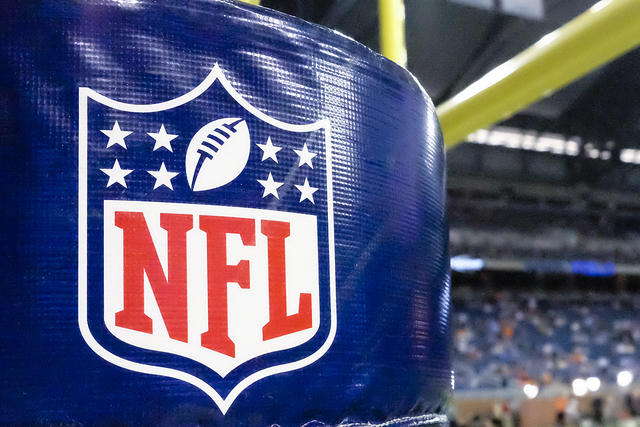NFL, players’ union agree on revised drug policy

The NFL and NFL Players Association reached agreement Wednesday to a revamped policy on performance-enhancing substances that includes the use of third-party arbitration appeals of positive tests and implementation of testing for human growth hormone.
The joint announcement said the agreement incudes “wide-ranging improvements.”
The NFL and NFLPA also said that they are nearing an agreement on changes to the substance-abuse policy.
Discipline of players for certain violations in the 2014 league year will be adjusted to reflect the new policy. Wide receiver Wes Welker of the Denver Broncos, cornerback Orlando Scandrick of the Dallas Cowboys and wide receiver Stedman Bailey of the St. Louis Rams were immediately eligible to return to their teams and play this week.
According to NFL.com, the public won’t learn of all the players who are affected by the new policy. Some of the players who had entered into the early stages of the program will simply be taken back a step.
Other players who could be reinstated include New England Patriots cornerback Brandon Browner, Philadelphia Eagles offensive tackle Lane Johnson, New York Giants lineman Eric Herman, Broncos kicker Matt Prater, defensive end Dion Jordan of the Miami Dolphins and former Minnesota Vikings defensive end Spencer Nealy.
Cleveland Browns wide receiver Josh Gordon and former Indianapolis Colts wide receiver LaVon Brazill will have their season-long suspensions reduced to 10 games. Gordon continues to be allowed to work out at the Browns’ training facility.
Other revisions to the program on performance enhancing substances:
— HGH testing will be fully implemented this season. Information on testing procedures will be sent to clubs and players within the week, and testing should begin by the end of this month.
— Appeals of positive tests in the performance-enhancing drug programs (including HGH) will be heard by third-party arbitrators jointly selected and retained by the NFL and NFLPA. Appeals will be processed more expeditiously under improved rules and procedures.
— Discipline for violations of the performance-enhancing drug policy (including for HGH) will be modified. A first violation will result in a suspension without pay of up to six games depending on the nature of the violation. Use of a diuretic or masking agent will result in a suspension without pay of two games. Use of a steroid, stimulant, HGH or other banned substance will result in a suspension without pay of four games. Evidence of an attempt to manipulate a test will result in a suspension without pay of six games.
A second violation of the steroid policy will result in a suspension without pay of 10 games. A third violation will result in banishment for a minimum of two years.
Players who test positive for banned stimulants in the off-season will no longer be suspended. Instead, the player will be referred to the substance abuse program. Players who test positive for banned stimulants during the season will continue to be suspended without pay for four games.
— In cases involving discipline for violations other than positive tests (for example, a violation of law), the Commissioner will retain his current disciplinary authority. A player will have a right of appeal based on due process issues or a claim of disparate punishment. This appeal will be heard by a member of the existing CBA Appeals Panel.
Previously, the Collective Bargaining Agreement ratified in 2011 utilized the policies in place under the 2006 CBA.
Welker was suspended after testing positive for amphetamines. However, Welker was diagnosed with a concussion Aug. 24, his third such documented head injury in 10 months. He has not yet been medically cleared to play.
With the ban retroactive to Week 1, it means Gordon will serve eight more games and be eligible to play in Atlanta Nov. 23.
Gordon’s ban was reduced to 10 games because he violated the NFL’s substance-abuse policy at least four times. Under the new rules, that’s an automatic 10-game suspension.
New England coach Bill Belichick seems unclear about Browner’s status.
“I have no knowledge of it at all — zero,” Belichick said. “You’d have to talk to the league and other people that are involved with that. The drug policy in the NFL is an extremely confidential and sensitive area. I would say that in most cases, you probably know more about it than I do and certainly more in advance because of the great sources that you have. We don’t have any knowledge, input or really involvement whatsoever in the league’s drug policy.”